Related Research Articles

Battersea is a large district in southwest London, part of the London Borough of Wandsworth, England. It is centred 3.5 miles (5.6 km) southwest of Charing Cross it also extends along the south bank of the Thames Tideway. It includes the 200-acre (0.81 km2) Battersea Park.
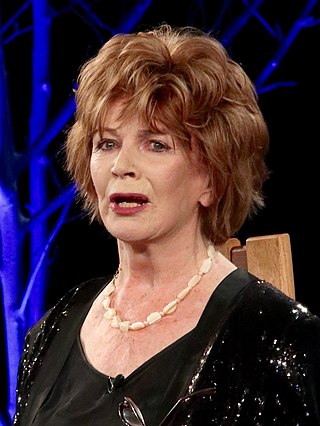
Josephine Edna O'Brien is an Irish novelist, memoirist, playwright, poet and short-story writer. Elected to Aosdána by her fellow artists, she was honoured with the title Saoi in 2015 and the biennial "UK and Ireland Nobel" David Cohen Prize in 2019, whilst France made her Commandeur de l'Ordre des Arts et des Lettres in 2021.

Clapham Common is a large triangular urban park in Clapham, south London, England. Originally common land for the parishes of Battersea and Clapham, it was converted to parkland under the terms of the Metropolitan Commons Act 1878. It is 220 acres of green space, with three ponds and a Victorian bandstand. It is overlooked by large Georgian and Victorian mansions and nearby Clapham Old Town.

Angela Maxine O'Brien is an American actress. Beginning a prolific career in feature films for Metro-Goldwyn-Mayer at age four, O'Brien became one of the most popular child stars in cinema history and was honored with a Juvenile Academy Award as the outstanding child actress of 1944. In her later career, she has appeared on television, on stage, and in supporting film roles.

The Wednesday Play is an anthology series of British television plays which ran on BBC1 for six seasons from October 1964 to May 1970. The plays were usually original works written for television, although dramatic adaptations of fiction also featured. The series gained a reputation for presenting contemporary social dramas, and for bringing issues to the attention of a mass audience that would not otherwise have been discussed on screen.

"Cathy Come Home" is a 1966 BBC television play about homelessness. It was written by Jeremy Sandford, produced by Tony Garnett and directed by Ken Loach. A 1998 Radio Times readers' poll voted it the "best single television drama" and a 2000 industry poll rated it as the second-best British television programme ever made. Filmed in a gritty, realistic drama documentary style, it was first broadcast on 16 November 1966 on BBC1. The play was shown in the BBC's The Wednesday Play anthology strand, which often tackled social issues.

"Up the Junction" was the third single released from Squeeze's second album, Cool for Cats. Sung by Glenn Tilbrook, it is one of the band's most popular and well-remembered songs, and reached number 2 on the UK Singles Chart, the same position as its predecessor, "Cool for Cats".

Poor Cow is a 1967 British kitchen sink drama film directed by Ken Loach and based on Nell Dunn's 1967 novel of the same name. It was Ken Loach's first feature film, after a series of TV productions. The film was re-released in the UK in 2016.
Christopher Jeremy Sandford was an English television screenwriter who came to prominence in 1966 with Cathy Come Home, his controversial entry in BBC1's The Wednesday Play anthology strand, which was directed by Ken Loach. Later, in 1971, he wrote another successful one-off, Edna, the Inebriate Woman, for The Wednesday Play's successor series Play for Today.
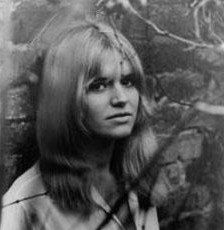
Carole Joan White was an English actress.
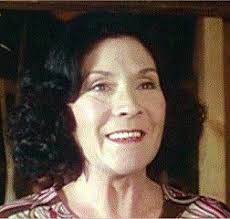
Queenie Watts was an English actress of film and television, as well as an occasional singer. She was noted for her broad cockney accent.

Up the Junction is a 1968 British "kitchen sink" drama film, directed by Peter Collinson and starring Dennis Waterman, Suzy Kendall, Adrienne Posta, Maureen Lipman and Liz Fraser. It is based on the 1963 book of the same name by Nell Dunn and was adapted by Roger Smith. The soundtrack was by Manfred Mann. The film followed Ken Loach's BBC TV adaptation of 1965, but returned to the original book. It generated less controversy and impact than the Loach version.
Ernest Gébler, sometimes credited as Ernie Gebler, was an Irish writer of Czech origin. He was a member of Aosdána.
Virginia Ironside is a British journalist, agony aunt and author. Born in London, she is the daughter of Christopher Ironside, painter and coin designer, and Janey Ironside who was the first professor of fashion design at the Royal College of Art. She was the niece of the painter and designer Robin Ironside.

Susan Huntington Gilbert Dickinson was an American writer, poet, traveler, and editor. She was a lifelong friend and sister-in-law of poet Emily Dickinson.

"Up the Junction" is an episode of the BBC anthology drama series The Wednesday Play directed by Ken Loach and produced by James MacTaggart. It was first broadcast on 3 November 1965 on BBC 1. The play was adapted by Nell Dunn and (uncredited) Ken Loach from Dunn's short story collection of the same name. It tells the stories of three young women living in North Battersea and Clapham and, to a lesser degree, their boyfriends.
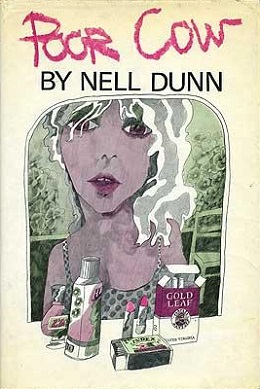
Poor Cow is the first full-length novel by Nell Dunn, first published in 1967 by MacGibbon & Kee. The novel is a study of a working-class girl from the East End of London, struggling through the swinging sixties after making one bad decision too many. The novel was adapted for film in the same year of publication.

Kenneth Charles Loach is a British film director and screenwriter. His socially critical directing style and socialism are evident in his film treatment of social issues such as poverty, homelessness, and labour rights.
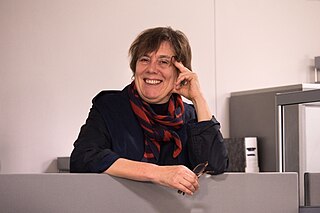
Rebecca O'Brien is a BAFTA-winning film producer, known especially for her work with Ken Loach. O'Brien was born in London, England.
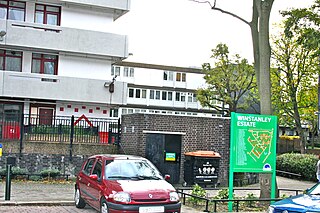
The Winstanley and York Road Estate comprises two large estates of predominantly public housing apartments in Battersea, London, adjacent to Clapham Junction railway station, although some have since passed into private ownership.
References
- 1 2 Brayfield, Celia (25 July 2019). Rebel Writers: The Accidental Feminists: Shelagh Delaney • Edna O'Brien • Lynne Reid-Banks • Charlotte Bingham • Nell Dunn • Virginia Ironside • Margaret Forster. Bloomsbury Publishing. ISBN 978-1-4482-1751-9.
- ↑ "Nell Dunn: I never used to think about death, until I was 50" . The Independent. 13 October 2013. Archived from the original on 18 June 2022. Retrieved 31 March 2021.
- 1 2 Ironside, Virginia (16 May 2003). "Nell Dunn: I never used to think about death, until I was 50. I was never going to die. I was immortal. But now I think about death every day" . The Independent. Archived from the original on 18 June 2022. Retrieved 17 April 2017.
- ↑ "Our Alumni". The Courtauld Institute of Art. Retrieved 14 January 2021.
- ↑ IMDB. Retrieved 25 April 2020.
- 1 2 Kate Webb, Something to say for herself: hearing and recording female voices, Times Literary Supplement , 17 July 2018.
- ↑ "Englishwoman Wins Blackburn Play Prize". The New York Times. 23 February 1982. ISSN 0362-4331 . Retrieved 31 March 2021.
- ↑ Gébler, Carlo (2000). Father and I: A Memoir. Little, Brown. ISBN 9781405529341 . Retrieved 31 May 2021.
- ↑ Lubin Odana (31 January 1968). "Poor Cow (1967)". IMDb. Retrieved 8 May 2015.